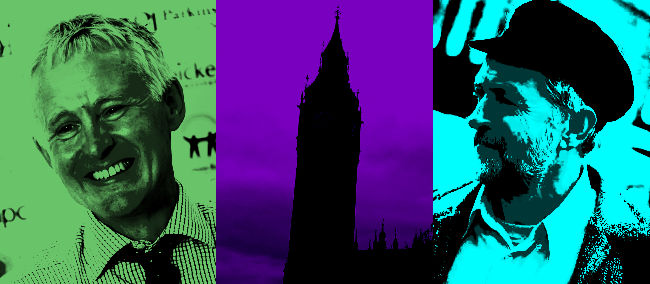Fallout from the departures of Labour’s Ed Miliband and the Liberal Democrats’ Nick Clegg continued to dominate headlines this week, alongside the anniversary of Magna Carta and a few other other oddities. Here’s what you may have missed:
1. Craig Murray: Nicola Corbyn and the Myth of the Unelectable Left
“The media are working overtime to marginalise Jeremy Corbyn as a Labour leadership candidate on the grounds that he is leftwing and therefore weird and unelectable. But they face the undeniable fact that, Scottish independence aside, there are very few political differences between Jeremy Corbyn and Nicola Sturgeon.”
Though the Scottish National Party (SNP) is probably more rightwing than admitted, the former British diplomat Murray argues an interesting case that Corbyn could be a better choice for Labour than much of the media (including The Right Dishonourable) have argued.
2. Tim Fenton: Don’t Menshn Peter Hitchens
“The Great Man [Peter Hitchens] put the lid on the latest Mensch idiocy as he calmly asked: ‘Don’t seem to have had any reply to this straightforward question. Are your Tweets in fact written by a Teletubby?’”
It is always a pleasure to have chick-lit author Louise Mensch trashed by all and sundry, and few bloggers are more skilled at narrating a good Twitter hounding than Fenton, a blogger who always has Fleet Street in his sights.
3. Dave Richards and Martin Smith: The Strange Resurrection of the British Political Tradition
“[Britain’s] prescribed mode of governance, that of the Westminster Model, highlighted the unitary character of the British Parliamentary State, organised round the principle of parliamentary sovereignty. In so doing, it delivered an elitist form of top-down government, based on a high concentration of power at the centre, what Brian Barry caustically referred to as a ‘power-hoarding’ approach to governing.”
The general election’s failure to deliver the multi-party politics the country craves has a long historical tradition, as the political academics Richards and Martin explain to the London School of Economics blog.
4. David Allen Green: The Meaning of Magna Carta
“Magna Carta is symbolic of is not a great English constitutional principle, but the lack of one. It symbolises the capacity of people to nod along at being told they have fictional and nonexistent rights instead of having rights which can actually be enforced. ”
Much has been written of Magna Carta over the last week, but in this informed piece Green – a writer, lawyer and sceptic of the Conservative government’s legal reforms – skewers the popular interpretation of the most famous document in British law.
5. Caron Lindsay: Norman Lamb removes staff for alleged negative push-polling
“It’s clear that Norman Lamb had no idea what was going on and when the complaints were made he took immediate action and suspended two campaign volunteers. He did the right thing, quickly, and should be commended for that.”
A quarrel between Liberal leadership hopefuls Tim Farron and Norman Lamb is given an exhaustive if gushing summary by the editor of Liberal Democrat Voice, an independent blog linked to the party.
Header Image – Norman Lamb (Acumen Images), Palace of Westminster (TRD) and Jeremy Corbyn (David Hunt), with editing by The Right Dishonourable
